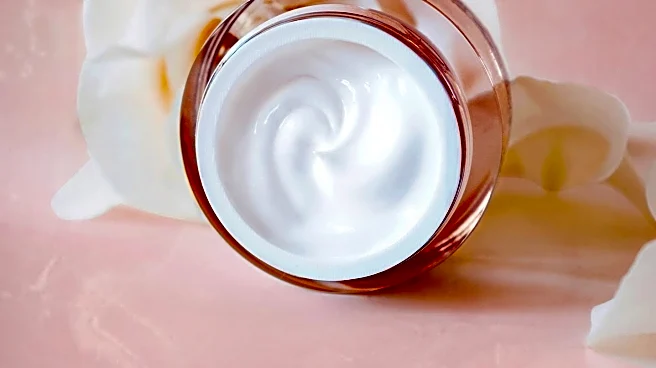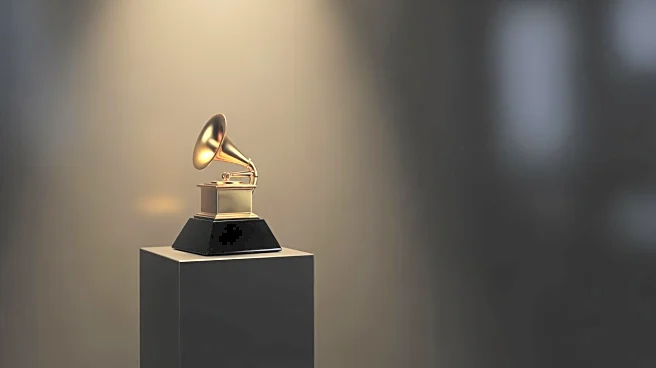What is the story about?
What's Happening?
Snail mucin, a natural compound derived from snail secretion, is gaining popularity in skincare routines for its hydrating and anti-aging properties. Dermatologists, including Dendy Engelman, MD, and Hadley King, MD, have highlighted its benefits, noting that it contains glycoproteins, hyaluronic acid, and glycolic acid, which help seal in moisture and enhance skin texture. The ingredient, trending on platforms like TikTok, is known for giving skin a glass-like appearance. Despite its popularity, snail mucin is not vegan, as it is harvested from snails in farms. While it offers hydration and may improve skin elasticity and firmness, experts caution that more research is needed to fully understand its long-term effects.
Why It's Important?
The rise of snail mucin in skincare reflects a broader trend towards natural and exotic ingredients in beauty products. Its ability to hydrate and potentially improve skin texture makes it appealing to consumers seeking alternatives to traditional skincare ingredients. However, the limited research on its efficacy compared to established ingredients like retinol and vitamin C raises questions about its long-term benefits. As consumers increasingly prioritize sustainability and ethical sourcing, the non-vegan nature of snail mucin may influence purchasing decisions. Dermatologists recommend patch testing for sensitive skin, highlighting the need for cautious adoption of new skincare trends.
What's Next?
As snail mucin continues to trend, skincare companies may invest in further research to validate its benefits and address ethical concerns regarding its sourcing. Consumers might see an increase in products featuring snail mucin, alongside efforts to ensure ethical harvesting practices. Dermatologists may conduct more studies to compare its effectiveness with other well-established skincare ingredients, potentially influencing its market position. The beauty industry could also explore synthetic alternatives to snail mucin to cater to vegan consumers, expanding the ingredient's accessibility and appeal.
Beyond the Headlines
The popularity of snail mucin underscores the influence of social media on consumer behavior, with platforms like TikTok driving interest in unconventional beauty products. This trend highlights the power of digital influencers in shaping skincare preferences and the potential for viral content to impact market dynamics. The ethical considerations surrounding snail mucin's sourcing may prompt discussions on sustainability and animal welfare in the beauty industry, encouraging brands to adopt more transparent practices.
















